Scholars
Scholarship is at the heart of our mission to advance knowledge, increase access to services and improve quality of care in mental health globally.
The Global Mental Health Scholars program is hosted by the Columbia-WHO Center for Global Mental Health as part of its commitment to train the next generation of leaders in mental health. Global Mental Health Scholars are individuals of exceptional professional training and intellectual curiosity, drawn from Psychiatry, Public Health, Psychology, Social Work, Health Policy, and other related disciplines from institutions worldwide.
The Global Mental Health Scholars program connects local expertise with global knowledge as Scholars engage in work that advances mental health service delivery and training in their communities. Scholars also contribute to large-scale initiatives, such as ICD-11 global field studies, and play a crucial role in expanding the infrastructure of the GCP.Network.
Current Scholars

Mexico
José Ángel García
PhD Candidate at the Center for Research and Teaching in Economics in Mexico City
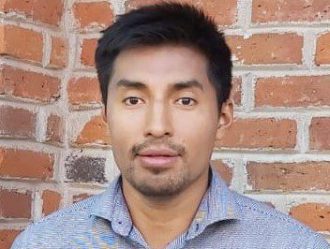
José Ángel García
PhD Candidate at the Center for Research and Teaching in Economics in Mexico City
José Ángel García has a degree in physical anthropology and a master’s degree in population and development studies. Mr. Garcia’s research has focused on population health studies, especially in the area of mortality and comorbidity between physical and mental illness. Since 2012, Mr. Garcia has been a collaborator with the Instituto Nacional de Psiquiatría Ramón de la Fuente Muñiz based in Mexico City where he has focused on statistical analysis of field study databases on psychoactive substances, migration and substance use, and ICD-11 field studies with Professor Geoffrey M. Reed. Currently, Mr. Garcia is earning his PhD at the Center for Research and Teaching in Economics in Mexico City. His research interests focus on mental health public policy, from its neglect of the national public agenda, to implementation failures and lack of evaluation.
As a GMH Scholar, Mr. Garcia is working on the study of the impact of COVID-19 on the clinical practice and well-being of global mental health professionals and on internet-based field studies on mental and behavioral disorders studies under the mentorship of Dr. Geoffrey M. Reed. For Mr. Garcia, being a GMH Scholar has been very helpful in increasing his analytical skills in international academic research and accessing information for his doctoral dissertation. He hopes to focus his future research on the implications of consistently neglecting mental health policy at the global and regional levels, as well as on how to improve strategies and initiatives for the benefit of the population’s mental health.
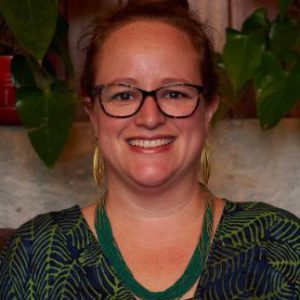
South Africa
Karen Maré
Clinical Research Psychiatrist, University of Cape Town
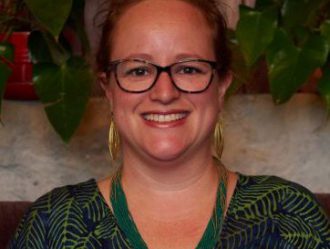
Karen Maré
Clinical Research Psychiatrist, University of Cape Town
Dr. Karen Maré is a Clinical Research Psychiatrist and the recently appointed Global Mental Health Scholar for South Africa. She received undergraduate medical training at Stellenbosch University (SU) and qualified in 2001. She trained in psychiatry on the East London & the City rotation and obtained membership of the Royal College of Psychiatrists in the UK in 2006. She acquired extensive experience in pharmacological and psychotherapeutic interventions for a broad range of mental and substance related disorders among the culturally diverse populations of East London. She developed clinical interests in transcultural psychiatry, developmental psychiatry, and psychodynamic, cognitive-based therapy, and family psychotherapy. A career break and motherhood laid the foundation for a passionate interest in maternal mental health.
Since 2015, Dr. Maré has been a member of the Brain Behaviour Unit (within the Neuroscience Institute) of the University of Cape Town (UCT). Here her research roles have included being trial manager of an interventional study on Dialogic Book Sharing, maternal mental health assessments using a structured diagnostic instrument, grant applications coordination, staff recruitment and training, and staff debriefing sessions. Dr. Maré also joined the MRC Unit on Risk and Resilience (a joint UCT/SU venture) in 2017. Here she has served as clinical assessor in NIH-funded global studies on neuroimaging and genetic findings among people with anxiety and OCD and related disorders. She has been involved in undergraduate medical education in psychiatry on a variety of topics including managing difficult patients, physician burnout, and differential diagnosis of anxiety disorders.
Dr. Maré is excited about joining other members in the Global Mental Health Scholars Program and the opportunities for future collaboration and international dissemination of findings this will yield. Her research/academic interests in cross-cultural psychiatry, communication and language, and Psychiatric Diagnosis have culminated in her current project. Her work will centre around development and clinical evaluation of a structured diagnostic interview based on the ICD-11, the SCII-11, as part of the international working group led by Dr. Michael B. First and Dr. Geoffrey M. Reed.
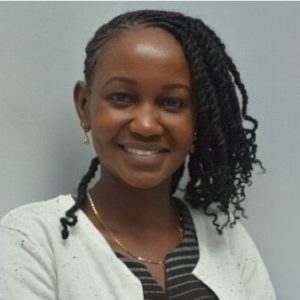
Kenya
Christine Musyimi
Research Ethics and Scientific Publications Officer, Africa Mental Health Research and Training Foundation
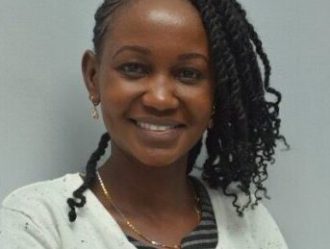
Christine Musyimi
Research Ethics and Scientific Publications Officer, Africa Mental Health Research and Training Foundation
Dr. Christine Musyimi, PhD, is a researcher and the head of research ethics and scientific publications department at Africa Mental Health Research and Training Foundation (AMHRTF). Her research focuses on promoting excellence in community-based mental health research and develops innovative strategies with special attention to depression, dementia, Intimate Partner Violence (IPV); and improving maternal and child mental health to increase mental health care access in remote settings. Dr. Musyimi has been the Principal Investigator for several projects aimed at training traditional and faith healers to deliver evidence-based mental health care in community settings. She has also been a postdoctoral research fellow on the Strengthening Responses to Dementia in Developing countries (STRiDE) project and is currently using anger management strategies to reduce IPV in Kenya. As a global mental health scholar, she aims at generating evidence on existing formal and informal care networks to strengthen health system response and support women experiencing IPV in informal settlements in Kenya.
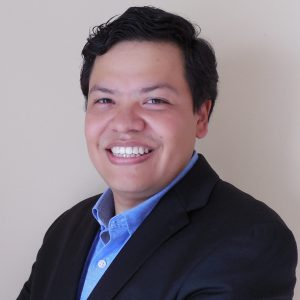
USA
Victor Puac-Polanco
Dean’s Postdoctoral Fellow in the Department of Health Care Policy at Harvard Medical School
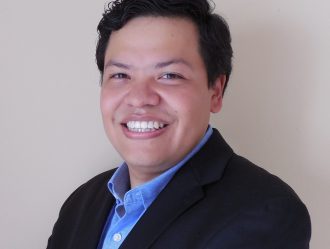
Victor Puac-Polanco
Dean’s Postdoctoral Fellow in the Department of Health Care Policy at Harvard Medical School
Dr. Puac-Polanco is a Dean’s Postdoctoral Fellow in the Department of Health Care Policy at Harvard Medical School in Boston, Massachusetts. Building on his previous work on psychiatric epidemiology in Guatemala, Dr. Puac-Polanco focuses his research on the translational implications of detecting and treating behavioral health problems in low- and middle-income countries. Specifically, estimating the costs of untreated common mental disorders from a societal perspective, simulating and assessing policy implementation effects in various parts of the world. Dr. Puac-Polanco received his Medical Degree from Universidad de San Carlos de Guatemala in 2009, his Master of Science in Clinical Epidemiology from the Perelman School of Medicine at the University of Pennsylvania in 2012, and his Doctor of Public Health from Columbia University Mailman School of Public Health in 2020.
Dr. Puac-Polanco actively participates in the Global Mental Health Scholars Program seminar series and interacts with other scholars to create collaboration opportunities. He is currently developing a proposal for a research career development award under Dr. Ronald C. Kessler (HMS), Dr. Kathleen M. Pike, and Dr. Geoffrey M. Reed’s mentorship. Dr. Puac-Polanco proposes to study the specific symptoms that improve and worsen in response to common antidepressants and create baseline symptom profiles of participants more likely to respond to each drug. If this proposal is granted, it will lead Dr. Puac-Polanco on the path towards an independent research career using advanced machine learning methods to create depressive symptom profiles.
Former Scholars
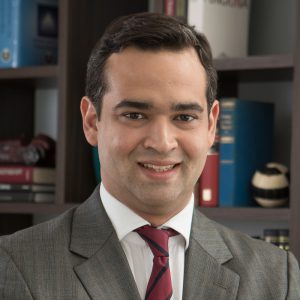
Brazil
Elson Asevedo
Psychiatrist, Department of Psychiatry, Federal University of São Paulo, Brazil
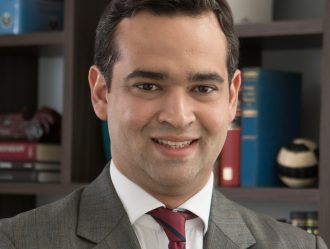
Elson Asevedo
Psychiatrist, Department of Psychiatry, Federal University of São Paulo, Brazil
Dr. Asevedo is a psychiatrist in the Department of Psychiatry of the Federal University of São Paulo, Brazil, where he serves as medical director of the department’s hospital (CAISM – Vila Mariana). Dr. Asevedo received his medical degree from the Federal University of Triângulo Mineiro School of Medicine and completed his psychiatry residency and Ph.D. at the Federal University of São Paulo. After working as a psychiatrist for the Brazilian Air Force, Dr. Asevedo participated in the implementation and directed for two years a public program to treat crack cocaine addiction in street populations in São Paulo. He has also studied the relationship between mental disorders and mechanisms of neuroplasticity and the understanding of early developmental trajectories of severe mental illness. In 2020, Dr. Asevedo founded an outpatient medical service for suicide prevention, Conversas de Vida – Centro de Promoção de Esperança e Prevenção de Suicídio.
His main interests are in developing strategies to improve identification, assessment, and care of individuals at risk for suicidal behavior and the implementation of public health policies targeting suicide prevention.
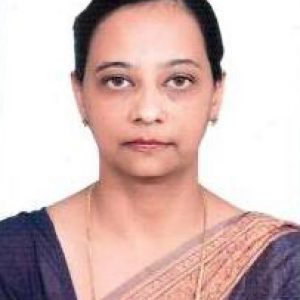
India
Rachna Bhargava
Additional Professor of Clinical Psychology at the National Drug Dependence Treatment Centre (NDDTC) of the All India Institute of Medical Sciences (AIIMS), New Delhi.
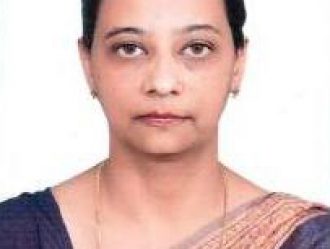
Rachna Bhargava
Additional Professor of Clinical Psychology at the National Drug Dependence Treatment Centre (NDDTC) of the All India Institute of Medical Sciences (AIIMS), New Delhi.
Since obtaining her doctoral degree, Dr. Bhargava has worked in positions involving clinical, research, teaching and administrative responsibilities in the departments of Psychiatry at Government Medical College and Hospital (in Chandigarh), Psychology in Delhi University and now Psychiatry and NDDTC at AIIMS. She has been engaged in earlier collaborative work around the WHO Quality of Life (WHOQOL) and has co-written grant applications, as well as received competitive grants for several projects. Recently, Dr. Bhargava was involved in a nation-wide survey on children with substance use, developed a Brief Intervention module to be used in school settings for children with substance use disorders, and was engaged in research to build capacity for counseling services.
As a GMH Scholar, Dr. Bhargava was involved in examining behavioral indicators in children and adolescents for Intellectual Disability Disorder in the ICD-11.
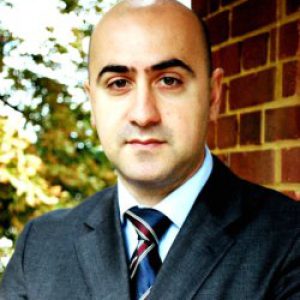
Lebanon
Joseph R. El-Khoury
Chief of the Department of Psychiatry and Behavioral Health at the American Hospital Dubai.
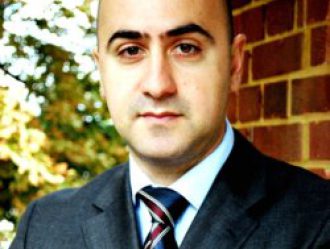
Joseph R. El-Khoury
Chief of the Department of Psychiatry and Behavioral Health at the American Hospital Dubai.
Dr. Joseph El-Khoury MD MSc PGCert. (EBPT), FRCPsych is a Consultant in Adult and Substance Misuse Psychiatry with over 12 years of psychiatric practice in the United Kingdom and Lebanon. He acts as the Scholar for the Arab region for the Global Mental Health Program at Columbia University since 2016.
After qualifying as a medical doctor in 2002 he trained in London and Oxford, obtaining Membership of the Royal College of Psychiatrists (MRCPsych) in 2006. He holds certification (CCT) in Adult and Substance Misuse Psychiatry since 2010 in addition to a Postgraduate Certificate in Cognitive Behavioural Therapy from the university of Reading.
Dr. El-Khoury was first appointed as a substantive consultant in the UK National Health Service in 2010. He currently holds an academic position as Assistant Professor of Clinical Psychiatry at the American University of Beirut (AUB). He is the founding director of the Psychosis Recovery Outreach Program (PROP) at AUBMC, the first community program for severe mental disorders in Lebanon. Dr. El-Khoury also directed the residency training program at AUBMC, one of the first ACGME-I (US) accredited programs in the Middle East from 2017 to 2021. Dr. El-Khoury has served on the executive committee member of the Lebanese Psychiatric Society since 2013 and is the current president elect. He was elected Fellow of the Royal College of Psychiatrist in 2019 for his contribution to the field of mental health.
Dr. El-Khoury has over 35 academic publications on topics ranging from addiction, psychosis and conflict medicine. He holds a Masters (MSc) in War and Psychiatry from King’s College London with an emphasis on psychotrauma and violence in the Middle East.
Since February 2021, Dr. El-Khoury has taken up a new appointment as Chief of the Department of Psychiatry and Behavioral Health at the American Hospital Dubai.

Nigeria
Lola Kola
Mental Health Specialist and Global Mental Health researcher at the WHO Collaborating Centre for Research and Training in Mental Health, Department of Psychiatry College of Medicine University of Ibadan, Nigeria.

Lola Kola
Mental Health Specialist and Global Mental Health researcher at the WHO Collaborating Centre for Research and Training in Mental Health, Department of Psychiatry College of Medicine University of Ibadan, Nigeria.
Dr. Lola Kola Ph.D, is a Mental Health Specialist and Global Mental Health researcher at the WHO Collaborating Centre for Research and Training in Mental Health, Department of Psychiatry College of Medicine University of Ibadan, Nigeria. She is also an Adjunct Associate Professor at the Department of Sociology and Psychology, Lead City University, Ibadan, and an affiliate faculty at the BRiTE Center, Department of Psychiatry Behavioral Sciences, University of Washington, Seattle, United States. Lola has a background in clinical social work in a hospital setting. Her Global Mental Health research foundation consists of 3 overlapping work areas —Epidemiological studies, innovation clinical trials in primary care using the WHO Mental Health GAP guidelines, and implementation studies. Lola’s current work is centered around developing psychosocial interventions on digital platforms to increase mental health services access. She is working with colleagues at the BRiTE center and the University of Ghana on how to establish a West African Mental Health digital mental health alliance (WADMA).
Lola has an NIH Emerging Global Leader award, and she is active in global mental health discussions in an era of COVID-19. She is speaking out on the mental health implications of the pandemic, and the model that promotes the use of technology to scale up access to mental health services through expert panel discussions, publications (Kola et al., 2021; COVID-19 mental health impact and responses in low-income and middle-income countries) and appearance on media (BBC popular radio program “The Evidence”). She is on the Editorial Board of Lancet Psychiatry and a co-editor of the Psychiatric Services Global Column on health reforms.
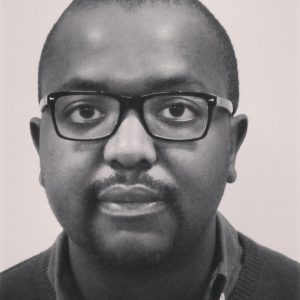
South Africa
Bulumko Lusu
Clinical Research Fellow, University of Cape Town Department of Psychiatry and Mental Health
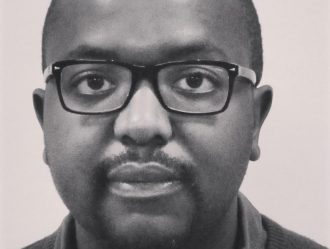
Bulumko Lusu
Clinical Research Fellow, University of Cape Town Department of Psychiatry and Mental Health
Dr. Bulumko Lusu is a South African medical doctor and also holds postgraduate diploma in mental health. He completed his undergraduate medical training at the university of Stellenbosch in Cape Town, South Africa in 2008, and since has spent most of his time working in clinical psychiatry. In 2016, Dr. Lusu became a member of the research team at the University of Cape Town (UCT), where he is currently enrolled as a Master’s student in the field of Psychiatry research.
His current research focus is the formulation and implementation of the field trials for the International Classification of Diseases 11th Revision (ICD11) in Cape Town, South Africa, for which he serves as South African Site Coordinator. He is also intimately involved with the psycho-social arm of the Drakenstein child health study, funded by the Bill & Melinda Gates Foundation, as well as with a UCT/Columbia University collaboration looking into the genomics of Schizophrenia in the local Xhosa population (the “SAX Study”). Dr. Lusu hopes to use this Global Mental Health Scholar opportunity as a platform on which to begin establishing meaningful collaboration relationships with scholars from other countries.
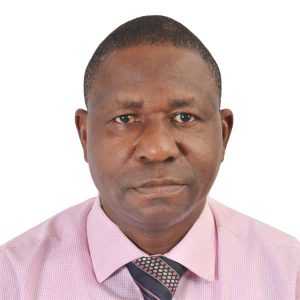
Nigeria
Lucky Umukoro ONOFA
Chief Consultant Psychiatrist and Director of Clinical Services at the Federal Neuropsychiatric Hospital, Aro, Abeokuta, Ogun State, Nigeria
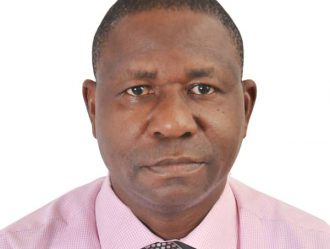
Lucky Umukoro ONOFA
Chief Consultant Psychiatrist and Director of Clinical Services at the Federal Neuropsychiatric Hospital, Aro, Abeokuta, Ogun State, Nigeria
Dr. Onofa Lucky Umukoro (MB: BS, M.SC (Epidemiology), FWACP, MNIM) is Chief Consultant Psychiatrist and Director of Clinical Services at the Federal Neuropsychiatric Hospital, Aro, Abeokuta, Ogun State, Nigeria. He acquired clinical and academic competence through his training at the West African College of Physicians, the Clinical Programme in Rehabilitation & Community Psychiatry at East London NHS Trust, and through postgraduate research at the Department of Epidemiology & Medical Statistics of the University of Ibadan, Nigeria.
Dr. Onofa works in the General Adult, Rehabilitation, Primary Care, and Community Psychiatry Unit of the Federal Neuropsychiatric Hospital. He was actively involved in the coordination, development, and roll-out of Aro Primary Care Mental Health Programme (APCMHP) for Ogun State, with a population of about 4 million. He is also actively involved in mental health teaching and training of medical students, resident doctors and other health professionals, and is a resource person to both the National Postgraduate Medical College of Nigeria and the West African College of Physicians. Additionally, Dr. Onofa is an illustrator and presenter of research papers at several local and international conferences, having published in reputable peer-reviewed journals. He was Chairman, Medical and Dental Consultants Association of Nigeria (MDCAN), Aro Hospital Chapter, and a member of the faculty for implementation of the WHO field trials for the International Classification of Diseases 11th Revision in Nigeria.
As a GMH Scholar, Dr. Onofa was the Site Coordinator of the International ICD-11 Field Trials in Aro Hospital, one of the two study sites in Nigeria (Onofa et al, 2019). He also conducted a study titled: Impact of Training Health Workers on Depression Recognition and Treatment at the Primary Health Care Level in Ogun State, Nigeria. Dr. Onofa has also served as the Aro Hospital Site Supervisor for the Columbia University Global Practical Program for Master’s Students in Public Health who created database for Aro Primary Care Mental Health Programme.
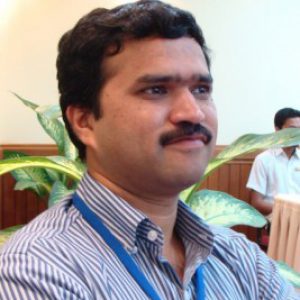
India
Ravindra Rao
Faculty of the National Drug Dependence Treatment Centre in the Department of Psychiatry of the All India Institute of Medical Sciences, New Delhi
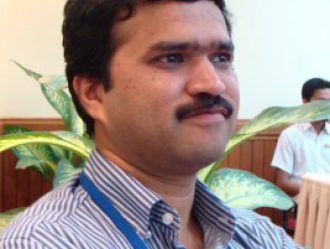
Ravindra Rao
Faculty of the National Drug Dependence Treatment Centre in the Department of Psychiatry of the All India Institute of Medical Sciences, New Delhi
Dr. Rao Ravindra Rao is a psychiatrist working in the area of substance use disorder. He is on the faculty of the National Drug Dependence Treatment Centre (NDDTC) in the Department of Psychiatry of the All India Institute of Medical Sciences (AIIMS), based in New Delhi, which is a tertiary level clinical, teaching, and research institute. Dr. Rao received his MD in Psychiatry from AIIMS, New Delhi.
After completing his senior residency at AIIMS, he worked for three years in the National AIDS Control Organization (NACO), within in the Ministry of Health and Family Welfare of the Government of India, where he managed the HIV prevention programs for injecting drug users. He then worked as a Technical Officer (Drugs and HIV) for the United Nations Office on Drugs and Crime (UNODC), in the Regional Office for South Asia, before joining the faculty at AIIMS.
His interests are in the area of substance use disorders, and in particular, injecting drug use, harm reduction and community-based treatment programs. He is also interested in public health issues related to mental health and substance use.

USA
Reuben N. Robbins
Associate Professor of Clinical Medical Psychology (in Psychiatry) at Columbia University
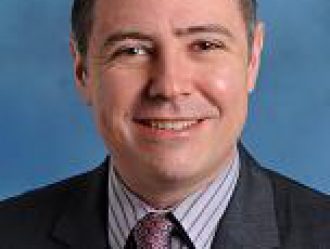
Reuben N. Robbins
Associate Professor of Clinical Medical Psychology (in Psychiatry) at Columbia University
Dr. Robbins is Associate Professor of Clinical Medical Psychology (in Psychiatry) at Columbia University. He received his Ph.D. in Clinical Psychology from the Graduate School of Arts and Sciences at Fordham University and completed his APA-approved clinical psychology internship at the University of Florida. Dr. Robbins brings his expertise in child and adult clinical neuropsychology, as well as individual, couples and group psychotherapy.
Drawing on his clinical work, Dr. Robbins has research and clinical expertise in neurocognitive, mental health, and psychosocial aspects of HIV disease in adults and adolescents both domestically and in low-and-middle income countries. He is interested in developing and testing technologically-based interventions that promote greater access to medical care and positive health outcomes among disadvantaged and vulnerable populations in resource limited settings. Dr. Robbins is the creator of an easy-to-use, highly automated tablet application to assess neuropsychological functioning and screen for neurocognitive impairment (NeuroScreen) that is being evaluating for use to detect impairment in perinatally HIV-infected adolescents in South Africa (R01 HD095256, PI: Robbins), Thailand (R21 HD098035; PI: Robbins) and Uganda (R01 TW011228, PI: Robbins), as well as among older adults with suspected dementia in South Africa (3R01 HD095256-03S2).
Over the past 13 years, Dr. Robbins has contributed to and completed numerous research projects examining neurocognitive functioning, mental health, sex and drug risk behaviors, and adherence to HIV medical treatment in HIV-infected, -affected and at-risk adolescents and adults. Furthermore, he has been at the forefront of developing and testing technology-based clinical tools and interventions for resource-limited settings. As the creator of the NeuroScreen app, Dr. Robbins hopes to make neurocognitive testing more accurate and more widely available to populations that typically cannot access these services. Furthermore, the NeuroScreen app may also make the assessment of neurocognitive functioning more widely available to researchers in low- and middle-income countries, as well as other resource limited settings.

USA
Hiral Shah
Assistant Professor in the Movement Disorders Division of the Department of Neurology at the Neurological Institute at Columbia University Medical Center

Hiral Shah
Assistant Professor in the Movement Disorders Division of the Department of Neurology at the Neurological Institute at Columbia University Medical Center
Dr. Shah is a faculty member and Medical Director of the Parkinson’s Foundation Center of Excellence in the Movement Disorders Division of the Department of Neurology at the Neurological Institute at Columbia University Medical Center. She completed her undergraduate at MIT and her medical school training at Indiana University School of Medicine. She then went on to Columbia University Medical Center for her internship and Neurology residency and served as Chief Resident.
Following, she spent a year at the World Health Organization in Geneva working in the Department of Mental Health and Substance Abuse on public health aspects of Neurological illnesses, namely Dementia, Epilepsy and Headache. She is most interested in learning how to overcome barriers of stigma and discrimination to improve care access, specifically where mental health conditions overlap within the vulnerable individuals who also suffer from neurodegenerative disorders that are more common among the aging population, such as dementia and Parkinson’s disease.

South Africa
Goodman Sibeko
Clinical Research Fellow, University of Cape Town Department of Psychiatry and Mental Health
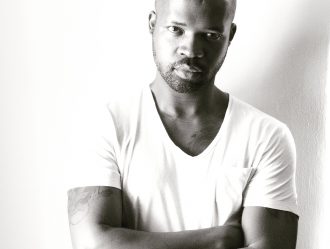
Goodman Sibeko
Clinical Research Fellow, University of Cape Town Department of Psychiatry and Mental Health
Dr. Goodman Sibeko is a medical doctor and a South African Medical Research Council-funded PhD student at the Department of Psychiatry and Mental Health at the University of Cape Town (UCT), where his research focus is on task shifting interventions for serious mental illness. Dr. Sibeko received his undergraduate medical training at the Nelson R. Mandela School of Medicine at the University of Kwazulu-Natal in Durban, South Africa. After spending some time thoroughly enjoying a surgical rotation in rural KwaZulu-Natal, he returned to Durban to join the Psychiatry residency programme. It was the experience working on a randomized controlled trial with Prof. Dan Stein at University of Cape Town (UCT) that sparked his ongoing interest in research and led to his pursuing a PhD in Psychiatry.
While he is involved with genomics research and other psychosis research at UCT, his main area of interest is caregiver-administered interventions for mental illness. His research roles have included participant recruitment, instrument translation and development, staff recruitment and training, quality assurance, and oversight of team dynamics. He will be part of the implementation of the field trials for the International Classification of Diseases 11th Revision (ICD11) in Cape Town, South Africa. Dr. Sibeko hopes that his membership in the Global Mental Health Scholars Program will help expand the reach of his work and facilitate new collaboration opportunities with colleagues from around the globe.

India
Yatan Pal Singh Balhara
Additional Professor of Psychiatry at the National Drug Dependence Treatment Centre (NDDTC) and Department of Psychiatry of the All India Institute of Medical Sciences (AIIMS) in New Delhi
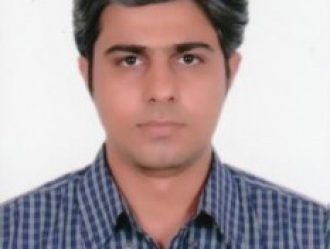
Yatan Pal Singh Balhara
Additional Professor of Psychiatry at the National Drug Dependence Treatment Centre (NDDTC) and Department of Psychiatry of the All India Institute of Medical Sciences (AIIMS) in New Delhi
Dr. Pal Singh Balhara is an Additional Professor of Psychiatry at the National Drug Dependence Treatment Centre (NDDTC) and Department of Psychiatry of the All India Institute of Medical Sciences (AIIMS) in New Delhi. Dr. Balhara received his MD in Psychiatry from AIIMS, New Delhi, in 2006. He then completed the International Masters of Mental Health Policy and Services program offered in collaboration by the World Health Organization (WHO) and the Universidade Nova de Lisboa, Portugal.
Currently, he is involved in clinical service delivery in both inpatient and outpatient settings. In addition, he runs weekly clinics on dual diagnosis (comorbid substance use disorders and psychotic disorders) and behavioral addictions. Dr. Balhara’s interests are in psychiatry and substance use disorders, and his research has dealt with behavioral addictions, dual diagnosis, substance use disorders, and psychiatry training. Dr. Balhara has been involved in multi-national research projects, and has offered consultancy to organizations like WHO, UNODC and the Colombo Plan.
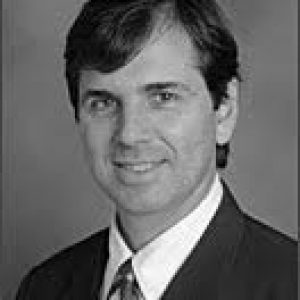
USA
Scott Stroup
Professor and Vice-Chair for Faculty Affairs in the Department of Psychiatry at Columbia University Vagelos College of Physicians and Surgeons

Scott Stroup
Professor and Vice-Chair for Faculty Affairs in the Department of Psychiatry at Columbia University Vagelos College of Physicians and Surgeons
Dr. Stroup’s research focuses on the effectiveness of interventions and services for people with schizophrenia and related disorders. He was co-principal investigator of the Clinical Antipsychotic Trials of Intervention Effectiveness (CATIE) schizophrenia study and led several clinical trials as principal investigator of the NIMH-sponsored Schizophrenia Trials Network. He currently leads an NIMH-sponsored research center “Optimizing and Personalizing Interventions for Schizophrenia Across the Lifespan.” He works with the New York State Office of Mental Health to disseminate evidence-based practices.
